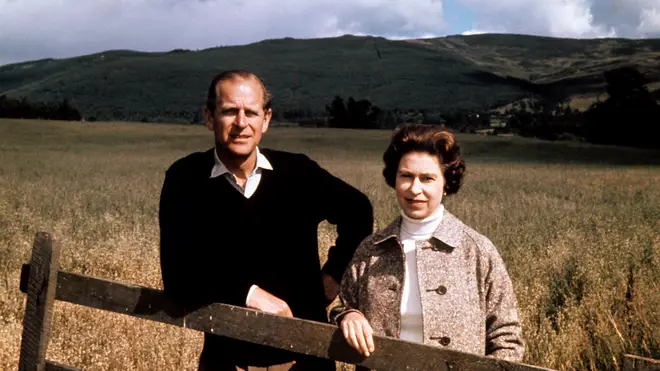Will Prince Philip have a state funeral?
9 April 2021, 15:42 | Updated: 9 April 2021, 16:39

Prince Philip: The Duke of Edinburgh Dies Aged 99
Prince Philip died on Friday April 9 aged 99.
Buckingham Palace announced on Friday April 9 that Prince Philip had passed away.
A statement from the palace read: "It is with deep sorrow that Her Majesty The Queen has announced the death of her beloved husband, His Royal Highness The Prince Philip, Duke of Edinburgh.
"His Royal Highness passed away peacefully this morning at Windsor Castle."
It is with deep sorrow that Her Majesty The Queen has announced the death of her beloved husband, His Royal Highness The Prince Philip, Duke of Edinburgh.
— The Royal Family (@RoyalFamily) April 9, 2021
His Royal Highness passed away peacefully this morning at Windsor Castle. pic.twitter.com/XOIDQqlFPn
Will Prince Philip have a state funeral?
It is understood that Prince Philip will not have a state funeral.
He is entitled to one as the consort of the Queen, but he previously stated he didn't want the 'fuss'.
The Duke asked for relatively low-key funeral, swapping a formal lying-in-state for commemorations looking back at his military ties and charity patronages.
It is believed that he requested a private service held at St George’s Chapel in Windsor, as well as a burial in Frogmore Gardens.
According to the Telegraph, Buckingham Palace sources said the funeral would adhere to the current coronavirus guidelines - with no more than 30 people in attendance.
It is reported that the Queen will sign off final plans for his funeral in the coming days.
We don't yet know when it will take place, but reports have suggested it will be in around a week's time.
The last state funeral for a member of the royal family was for the Queen's father, King George VI, which took place in 1952.

Prince Philip was married to the Queen for more than 70 years, and became the longest-serving consort in British history.
They had four children - Charles, Anne, Andrew and Edward - and he was a much loved father, grandfather and great-grandfather.
Prince Philip of Greece and Denmark was born on the island of Corfu in 1921, and he joined the Royal Navy as a cadet when he was 18.
He served in the Indian Ocean and the Mediterranean in the Second World War, and was mentioned in despatches for his bravery.
He renounced his Greek and Danish royal titles in 1947 ahead of his marriage to Princess Elizabeth, taking on the surname of Mountbatten and becoming a naturalised British subject at that time.
NOW READ:
Prince Philip - a life in pictures























